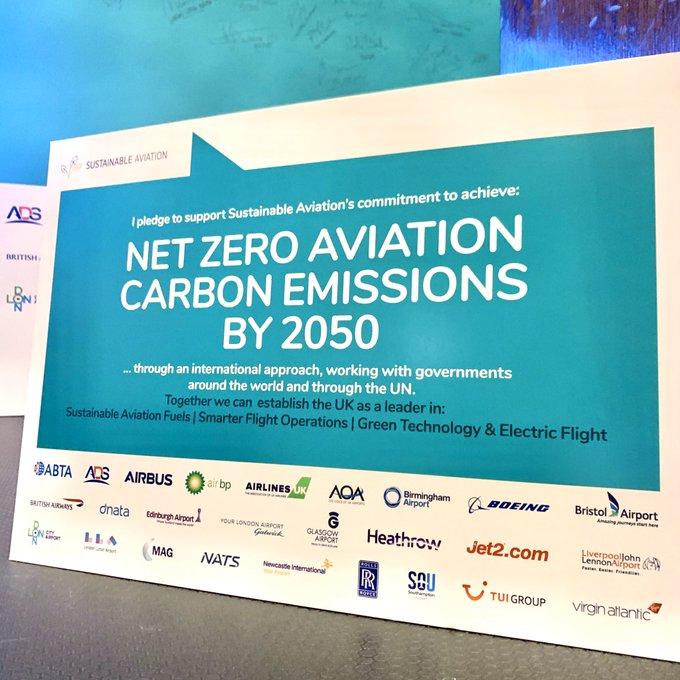UK Aerospace Commits To Decarbonized Aviation By 2050

LONDON—The UK’s aerospace industry has committed to delivering net zero carbon emissions by 2050.
The Sustainable Aviation collective, which includes airlines, OEMs and associations, believes that the aerospace industry can deliver growth in passenger numbers of 70% and reduce the industry’s carbon dioxide (CO2) emissions from 30 million tons per year, to zero.
The group has revealed a development roadmap which suggests that improvements in aircraft and engine efficiency as well as developments in more efficient gas-turbine engines, hybrid electric and fully electric aircraft, could deliver the most impact, reducing CO2 emissions by 23.5 million tons a year, while sustainable aviation fuels could reduce emissions by 30%.
More efficient use of airspace, more international programs carbon offsetting, capture, removal, and pricing to reduce demand for flying would also deliver significant reductions, the group says.
The roadmap also suggests that the UK could become an international leader in the development of sustainable aviation fuels and could produce as much as one million tons of such fuel a year by 2035 and as much as 4.5 million tons by 2050. As many as 14 plants could be set up to produce the fuels and be operational by 2050. British Airways is already working with Immingham-based Altalto, and Virgin Atlantic is working with Lanzatech to turn household waste into sustainable fuel.
“The UK is well positioned to become one of the leaders in the green technologies of the future, including sustainable aviation fuels and electric flight, creating highly-skilled and well-paid jobs in the process ... we look forward to working in partnership with ministers to help realize these opportunities,” said Neil Robinson, the Corporate Social Responsibility (CSR) director for Manchester Airports Group, and the chair of the Sustainable Aviation Group.
Leadership in sustainable fuels will only be possible, the group says, if the government supports the work with investments, noting that “UK production and deployment of sustainable aviation fuels requires Government to develop a coordinated UK vision and strategy for their deployment.”
“The fight against climate change is one of the greatest challenges facing the modern world, but the aviation sector’s commitment today is a huge step forward in creating a greener future,” said Grant Shapps, UK Secretary of State for Transport.
Sustainable Aviation says that the UK has already made significant strides, noting that between 2010 and 2016 passenger numbers in the UK grew by 25% but emissions only increased by 5%.




